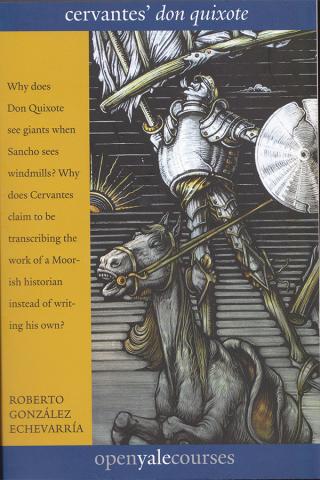
The novel Don Quixote, written in the late sixteenth and early seventeenth century by Miguel de Cervantes Saavedra, is widely considered to be one of the greatest fictional works in the entire canon of Western literature. At once farcical and deeply philosophical, Cervantes’ novel and its characters have become integrated into the cultures of the Western Hemisphere, influencing language and modern thought while inspiring art and artists such as Richard Strauss and Pablo Picasso. Based on Professor Roberto González Echevarría’s popular open course at Yale University, this essential guide to the enduring Spanish classic facilitates a close reading of Don Quixote in the artistic and historical context of renaissance and baroque Spain while exploring why Cervantes’ masterwork is still widely read and relevant today. González Echevarría addresses the novel’s major themes and demonstrates how the story of an aging, deluded would-be knight-errant embodies that most modern of predicaments: the individual’s dissatisfaction with the world in which he lives, and his struggle to make that world mesh with his desires.